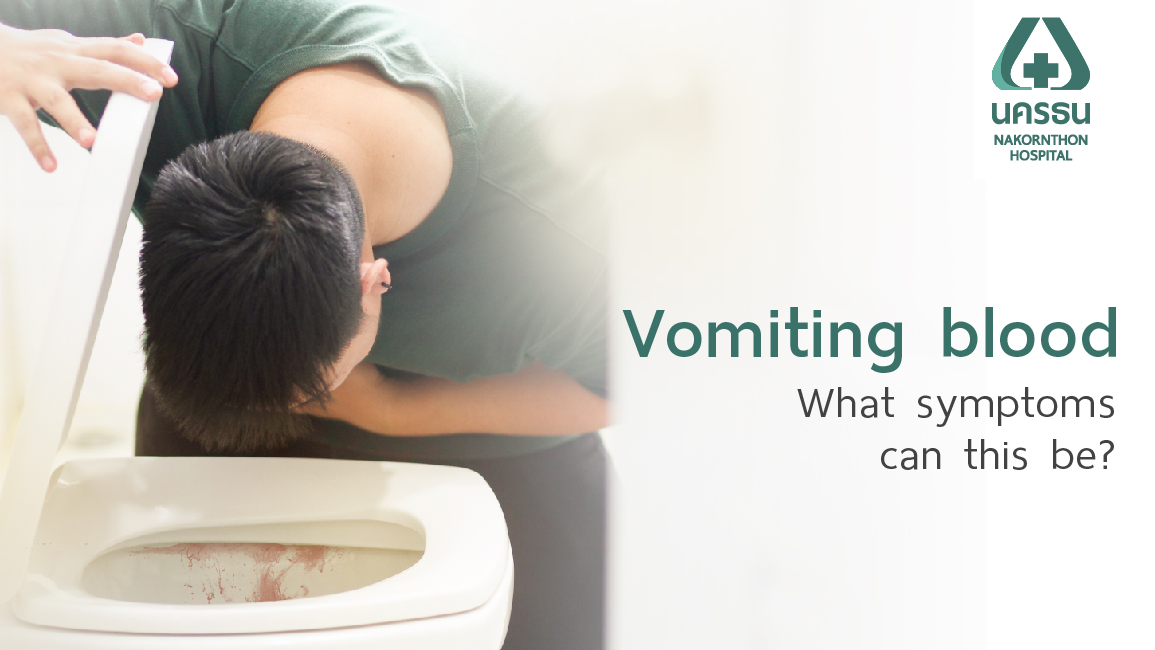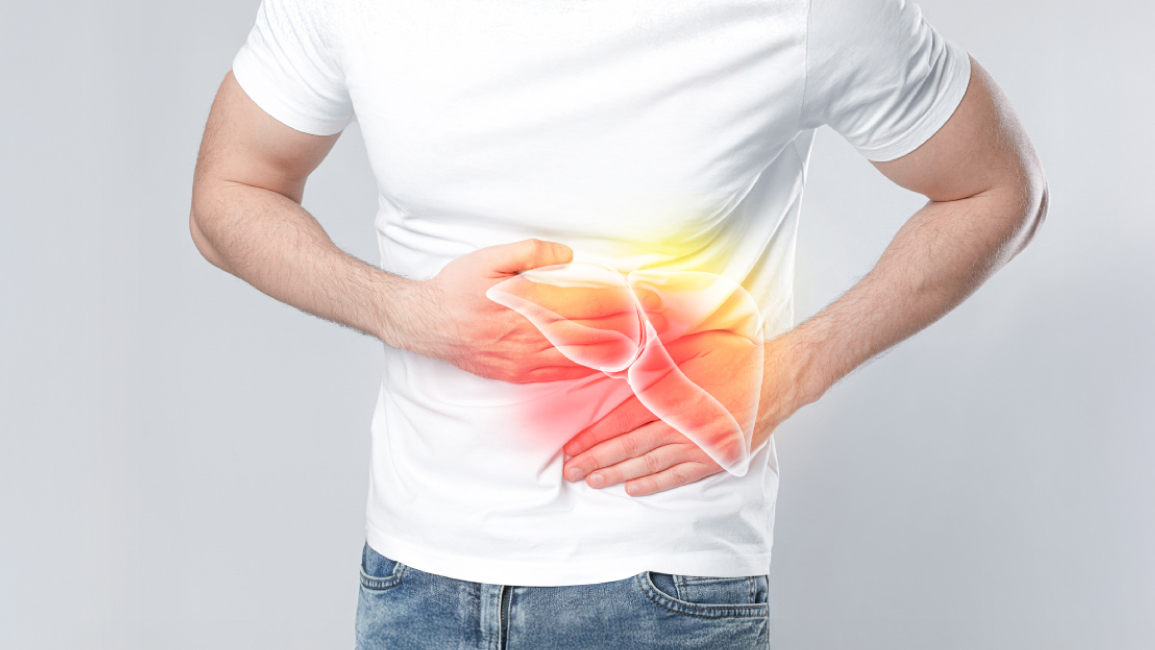UGIB - Causes, Treatment
Center : Gastrointestinal and Liver Center

Choose to read by topic:
Upper gastrointestinal bleeding (Gastrointestinal bleeding) is a condition in which bleeding occurs from the esophagus to the small intestine. Which is a common condition in both women and men, generally found in adults, middle-aged and older and can occur in both acute and chronic type (Less common)
The cause can come from many factors such as stress, diet, and bowel movements. If someone has symptoms such as vomiting blood due to gastric acidosis. Defecation of fresh blood or for some people may be an indication of severe gastrointestinal bleeding. Because these things can be signs of a serious disease.
The digestive system is divided into two parts: the upper GI tract, which consists of the esophagus, stomach, and small intestine. While the lower GI tract is made up of the large intestine, down towards the anus, all the organs of both these parts can always cause bleeding, both from stress factors, eating, and excretion.
What is UGIB (upper gastrointestinal bleeding)?
Upper gastrointestinal bleeding (UGIB) is a condition in which bleeding in the digestive system occurs. It is a condition caused by diseases of the upper gastrointestinal tract, such as the esophagus, stomach and duodenum. People with upper gastrointestinal tract bleeding may have mild to severe symptoms. If the bleeding is minimal, the abnormality may not be detected early and can be life-threatening if not treated.
UGIB Symptoms
Symptoms of upper gastrointestinal bleeding
- Vomiting blood, is the most common cause are ulcers in the stomach, followed by an ulcer in the primary small intestine. Sometimes when the blood is exposed to stomach acid, it produces a coffee-colored vomit
- In some cases, there will be black, wet, sticky stools like asphalt. A strong smell which usually occurs with vomiting blood
- Common symptoms may include nausea, loss of appetite, upper abdominal pain above the navel. If there is a lot of bleeding, you may experience paleness, weakness, fast heartbeat, and fainting
When to see a doctor, how many symptoms should you see?
Vomiting is red or black and resembling grounded coffee. The stool is black, the stomach is painful, dizziness, weakness, and pallor, if the bleeding is severe; medical attention should be sought as soon as possible. Do not urinate or urinate only in small amounts. Rapid pulse and loss of consciousness that may lead to shock.
Causes of UGIB
Causes of upper gastrointestinal bleeding include:
- Gastric ulcer is the main cause of UGIB. Ulcers in the gastric and duodenal mucosa are often caused by H. pylori bacteria, stomach acid, and the use of nonsteroidal analgesics (NSAIDs) and antiplatelet medications such as aspirin, alcohol consumption and stress, etc.
- Duodenal ulcer is caused by the excessive acid secretion in the stomach, which irritates the epithelium of the duodenum which causes ulcers.
- The esophagus has abnormalities in the veins in which the esophagus aneurysm breaks out, which can cause bleeding.
- Varicose veins in the esophagus are mainly found in patients with severe liver disease, where varicose veins in the esophagus can also result in gastrointestinal bleeding.
UGIB Diagnosis
A history and physical examination will help determine where the blood is likely to leave the upper digestive tract, and may be examined in additional ways to help confirm the diagnosis, such as:
- Blood tests to determine blood clotting, platelets and liver function
- Stool examination to help confirm bleeding within the digestive tract.
- Laparoscopy Gastroscopy (EGD) to examine the esophagus with a small video camera. The video is recorded and appears on the screen, and in some cases, treatment can even be given. During laparoscopy, hemostatic procedures can be performed without the need for major surgery, and if a tumor is discovered, it is still possible to insert a tumor incision instrument to take it out for further examination.
- Vascular examination the doctor injects contrast into the patient's arteries before X-ray. To detect bleeding blood vessels or various disorders.
- CT scan or computed tomography of the abdominal area to detect spots of bleeding or abnormalities within the upper gastrointestinal tract.
Complications of UGIB
Complications from upper gastrointestinal tract bleeding can arise, such as anemia, renal failure shock if the bleeding is severe and may lead to death if treatment is not given in time.
UGIB and LGIB Differences
In general, gastrointestinal bleeding. It is divided into 2 parts:
- Upper gastrointestinal bleeding (UGIB) consists of the esophagus, stomach and small intestine are usually accompanied by vomiting blood. In some cases, it is excreted in the form of black, wet, sticky stool like asphalt. Strong stench, which sometimes occurs in combination with vomiting blood, etc.
- Lower gastrointestinal bleeding (LGIB) includes the lower small intestine, colon, down to the rectum, usually with fresh blood secreted or may not have obvious symptoms but come to the doctor with other symptoms such as pallor, fatigue, fainting, lassitude, exhaustion, etc.
All of these organs can be affected by bleeding, both due to stress factors, diet and medication, as well as excretion, etc.
UGIB Treatment
If a lesion is found, it is likely to cause further bleeding. Treatment can be immediate, with laparoscopy and to avoid anaphylactic shock that can lead to death, patients’ iv fluids and blood products to replace lost blood and prevent anaphylactic shock. To confirm that it is indeed upper gastrointestinal bleeding, treatment is then determined according to the cause of the upper gastrointestinal bleeding as follows:
- Treatment of cases that have indications other than esophageal or stomach aortic aneurysm are treated with the following methods, such as laparoscopic treatment. Endoscopic therapy, epinephrine injection, sclerosant, fibrin glue, electric cautery, laser and treatment by injection through blood vessels. Surgical treatment and antacid therapy include antihistamine-2 receptor drugs and proton pump inhibitors, etc.
- Treatment of cases caused by esophageal or stomach aortic aneurysm, such as balloon tamponade, laparoscopic treatment with rubber banding, opening of blood vessels inside the liver, etc.
Prevention of UGIB
Prevention of upper gastrointestinal tract bleeding can be accomplished by modifying potentially risky behaviors such as abstaining from smoking and alcohol and limiting the use of nonsteroidal anti-inflammatory drugs etc. In addition, if the patient has previously suffered from acid reflux, it is best to strictly follow a doctor's treatment instructions. To prevent the subsequent occurrence of gastrointestinal bleeding.
Conclusion UGIB
If you experience any abnormalities in the body, such as defecation, changing color, dark or abnormal blackness of stool or fatigue, seek medical attention urgently because ignoring it can cause blood loss and cause death.
Why must come to Nakornthon?
Our Gastrointestinal and Liver Center at Nakornthon Hospital is a specialized medical center which delivers the best treatment for intestinal and liver diseases and the best quality services to patients. With therapeutic technology and standardize equipment, our physician and well-trained expertise are here to provide personalized care at all time. Gastrointestinal and Liver Center, Nakornthon Hospital can provide one stop service aside with many facilities such as endoscope service, bowel preparation room, recovery room. With personalized care, we try our best effort to keep our patient safety as priority. The diagnosis and treatment have performed to minimize the risk factors for complication and reduce the length of hospital stays.
Online Consultation
Article of Gastrointestinal and Liver Center





